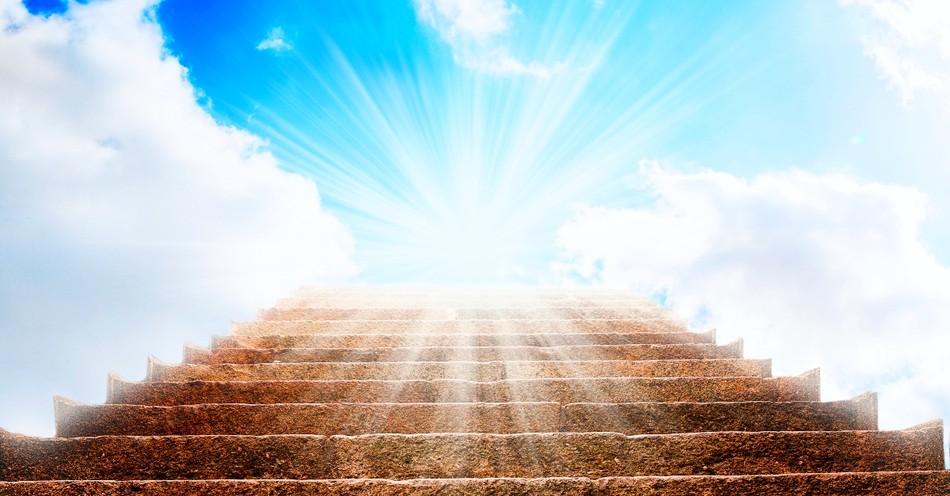Who doesn’t love an origin story of how things came to be?
In Genesis 11, the Bible explains how we ended up with so many languages. A group of people got together to build a city with a great tower — the Tower of Babel.
But God saw this and put an end to it. He confused their languages so they couldn’t communicate, and they were forced to scatter.
However, the more important part of this record concerns the reasons why this step was necessary. The story of Babel gives insight into the true path to good things.
What Was the Tower of Babel?
We find the account of the Tower of Babel in Genesis 11:1-9. Interestingly, you won’t find the phrase “Tower of Babel” in the Bible. (The chapter headings were added later and weren’t included in the original text).
Now the whole world had one language and a common speech. As people moved eastward, they found a plain in Shinar and settled there.
They said to each other, “Come, let’s make bricks and bake them thoroughly.” They used brick instead of stone, and tar for mortar. Then they said, “Come, let us build ourselves a city, with a tower that reaches to the heavens, so that we may make a name for ourselves; otherwise we will be scattered over the face of the whole earth.”
But the Lord came down to see the city and the tower the people were building. The Lord said, “If as one people speaking the same language they have begun to do this, then nothing they plan to do will be impossible for them. Come, let us go down and confuse their language so they will not understand each other.”
So the Lord scattered them from there over all the earth, and they stopped building the city. That is why it was called Babel — because there the Lord confused the language of the whole world. From there the Lord scattered them over the face of the whole earth (Genesis 11:1-9).
Instead, the Bible records, “Then they said, ‘Come, let us build ourselves a city, with a tower that reaches to the heavens’” (Genesis 11:4).
Babel was not the name of the tower. Rather, it was the name of the city. The people planned to include a tower in the city they were building.
Many people believe this tower was a ziggurat, or step pyramid, a type of structure often used in ancient times for worship, to get closer to the gods in the sky.
Who Built the Tower of Babel?
The builders of Babel evidently moved eastward after the Flood into the land of Shinar (Genesis 11:1-2), usually understood to be the land of Babylon, and settled there.
Babel is often thought to be the same city as Babylon, which Nimrod is recorded as founding in Genesis 10:10. In fact, some Bible translations actually list this city as Babel rather than Babylon.
Since in Genesis 11:4, the people say, “Come, let us build ourselves a city, with a tower that reaches to the heaven,” if Nimrod founded the city of Babel, it is likely he would have been part of this plan.
This is accepted in many Jewish writings. The ancient historian Josephus states of Nimrod,
He also said he would be revenged on God, if he should have a mind to drown the world again; for that he would build a tower too high for the waters to be able to reach and that he would avenge himself on God for destroying their forefathers (Antiquities of the Jews, Book 1, Chapter 4).
Notably, construction was never finished.
What Was Wrong with the Tower of Babel?
The explanation given by the people is telling what was so wrong with the tower: “Come, let us build ourselves a city, with a tower that reaches to the heavens, so that we may make a name for ourselves; otherwise, we will be scattered over the face of the whole earth” (Genesis 11:4).
First, the people wanted to make a name for themselves. They were trying to prove how great they were, in a show of arrogance.
Second, and perhaps more importantly, they were directly disobeying God. God had told the people to multiply and spread out over the earth, but instead, the people deliberately contrived to keep from doing so.
As was noted above in the works of Josephus, it is often interpreted that the city and tower were constructed not only to make a show of greatness and power but also to spite God.
What Was the Sin That Condemened the Tower of Babel?
The people of Babel wanted to make a name for themselves and make themselves great, in disobedience to the commands of God. Through their own might, they attempted to become powerful.
Instead, God used their disobedience to create languages and dispersion, and instead of a great name, the name of their city, Babel, meant “confusion” (Genesis 11:9). Their attempts were fruitless.
This is in contrast to the story of Abraham, which follows in Genesis 12. God said to Abraham, “Go from your country, your people and your father’s household to the land I will show you. I will make you into a great nation, and I will bless you; I will make your name great, and you will be a blessing” (Genesis 12:1-2).
Abraham didn’t pursue greatness, but instead followed God and did as God instructed. As a result, Abraham’s name did indeed become great, and from his line came Israel, and eventually, Jesus, the Savior of the World.
When we submit to God and follow His ways and instructions instead of our own, miraculous things can happen.
Babel is a story of contrasts. When we attempt to glorify ourselves, our plans will come to ruin. However, when we strive to glorify God, we will be amazed by what He can do through us.
For further reading:
10 Things Christians Should Know about the Tower of Babel
Who Was Noah in the Bible? Meaning and Symbols of the Story of Noah
7 Facts You Didn’t Know about Nimrod in the Bible
Why Was Abraham Chosen to be the Father of All Nations?
What Is Glory in Christianity?
Photo Credit: ©iStock/Getty Images Plus/hsiangwent




.jpg)